 Rhinoplasty, commonly referred to as a "nose job," is a surgical procedure aimed at enhancing the appearance or functionality of the nose. It involves reshaping the nose by altering its
Read more
Rhinoplasty, commonly referred to as a "nose job," is a surgical procedure aimed at enhancing the appearance or functionality of the nose. It involves reshaping the nose by altering its
Read more
-
Rhinoplasty: Enhancing Nasal Aesthetics and Function
posted: Apr. 18, 2024.
 Rhinoplasty, commonly referred to as a "nose job," is a surgical procedure aimed at enhancing the appearance or functionality of the nose. It involves reshaping the nose by altering its
Read more
Rhinoplasty, commonly referred to as a "nose job," is a surgical procedure aimed at enhancing the appearance or functionality of the nose. It involves reshaping the nose by altering its
Read more
-
Breast Augmentation: What To Know
posted: Apr. 03, 2024.
 Breast augmentation, also known as augmentation mammoplasty, is a surgical procedure designed to enhance the size and shape of the breasts. Breast augmentation can transform your appearance and make you
Read more
Breast augmentation, also known as augmentation mammoplasty, is a surgical procedure designed to enhance the size and shape of the breasts. Breast augmentation can transform your appearance and make you
Read more
-
Facial Rejuvenation: Options for Addressing Wrinkles, Sagging, and Volume Loss
posted: Mar. 21, 2024.
 Your skin undergoes lots of changes as you age. These changes are most obvious on your face. If you are noticing fine lines, wrinkles, lost facial volume, and sagging skin,
Read more
Your skin undergoes lots of changes as you age. These changes are most obvious on your face. If you are noticing fine lines, wrinkles, lost facial volume, and sagging skin,
Read more
-
What To Know About a Brow Lift
posted: Mar. 12, 2024.
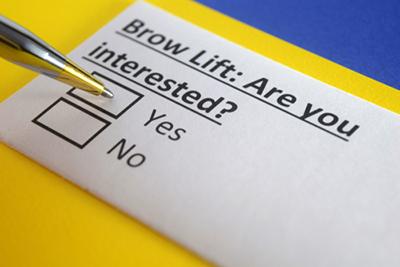 Your face changes as you age. Your skin loses moisture and elasticity, so your skin begins to sag. Sagging skin shows up everywhere, including your forehead and brows. Your plastic
Read more
Your face changes as you age. Your skin loses moisture and elasticity, so your skin begins to sag. Sagging skin shows up everywhere, including your forehead and brows. Your plastic
Read more
-
The Benefits of a Face & Neck Lift
posted: Mar. 07, 2024.
 Your beautiful face is your trademark. As you age, your skin loses vital moisture and elasticity, which can cause your facial and neck tissue to sag. Sagging skin can make
Read more
Your beautiful face is your trademark. As you age, your skin loses vital moisture and elasticity, which can cause your facial and neck tissue to sag. Sagging skin can make
Read more
-
What Is a Rhinoplasty?
posted: Mar. 05, 2024.
 Your nose is one of the first facial characteristics people notice about you. If your nose is too large or too small for your face, people notice. Fortunately, your plastic
Read more
Your nose is one of the first facial characteristics people notice about you. If your nose is too large or too small for your face, people notice. Fortunately, your plastic
Read more
-
The Evolution of Breast Augmentation
posted: Feb. 07, 2024.
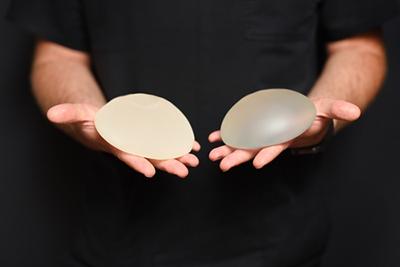 In the past, when people thought of breast augmentation, they may only think about large, exaggerated breasts that tend to not look natural. It’s important to know how technology has
Read more
In the past, when people thought of breast augmentation, they may only think about large, exaggerated breasts that tend to not look natural. It’s important to know how technology has
Read more
-
Body Contouring After Weight Loss: Sculpting a New You
posted: Jan. 29, 2024.
 When you lose a significant amount of weight, one issue you might face is loose and sagging skin. Your excess skin may hang off your body and won’t have the
Read more
When you lose a significant amount of weight, one issue you might face is loose and sagging skin. Your excess skin may hang off your body and won’t have the
Read more
-
Rhinoplasty Revelations: Everything You Need to Know About Nose Jobs
posted: Jan. 11, 2024.
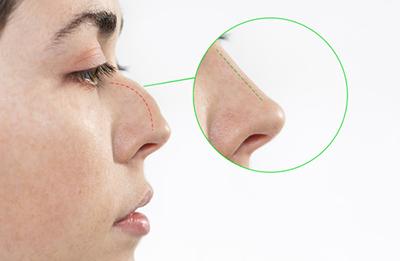 Everyone’s features are different, and we can all appreciate how unique we are. However, there are certain issues that can affect your health and how you’re able to function as
Read more
Everyone’s features are different, and we can all appreciate how unique we are. However, there are certain issues that can affect your health and how you’re able to function as
Read more
-
Eyelid Surgery (Blepharoplasty): Restoring Youthful Eyes and Improving Vision
posted: Dec. 26, 2023.
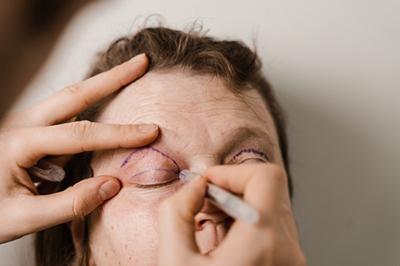 Do you notice your eyes looking tired and half-open? Do you notice your field of vision is narrowing? If so, you could benefit from an eyelid surgery, also known as
Read more
Do you notice your eyes looking tired and half-open? Do you notice your field of vision is narrowing? If so, you could benefit from an eyelid surgery, also known as
Read more
-
Natural-Looking Results: The Art and Science of Brow and Forehead Enhancements
posted: Nov. 30, 2023.
 Plastic surgery combines both art and scientific techniques to create a harmonizing, beautiful face and body. The appearance of the upper face is important, specifically the brows and forehead. Your
Read more
Plastic surgery combines both art and scientific techniques to create a harmonizing, beautiful face and body. The appearance of the upper face is important, specifically the brows and forehead. Your
Read more
-
Who Is a Candidate for Rhinoplasty Surgery
posted: Nov. 28, 2023.
 Rhinoplasty, commonly known as a nose job, is a surgical procedure to reshape or reconstruct the nose's structure for aesthetic or functional purposes. It addresses various concerns, such as correcting
Read more
Rhinoplasty, commonly known as a nose job, is a surgical procedure to reshape or reconstruct the nose's structure for aesthetic or functional purposes. It addresses various concerns, such as correcting
Read more
-
The Benefits of Breast Augmentation Surgery
posted: Oct. 27, 2023.
 Breast augmentation is a common procedure performed by a plastic surgeon. Breast augmentation is done to enlarge the size and fullness of the breasts, or to change the shape of
Read more
Breast augmentation is a common procedure performed by a plastic surgeon. Breast augmentation is done to enlarge the size and fullness of the breasts, or to change the shape of
Read more
-
Understanding Rhinoplasty
posted: Oct. 13, 2023.
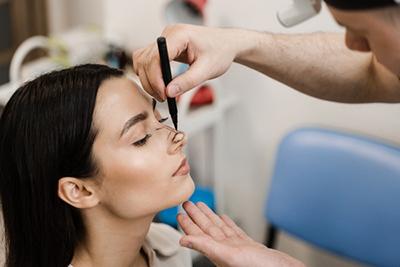 When you’re dealing with issues with the shape and structure of your nose, it can be difficult to breathe. This can affect several areas of your life. You might not
Read more
When you’re dealing with issues with the shape and structure of your nose, it can be difficult to breathe. This can affect several areas of your life. You might not
Read more
-
Preventing Sinus Headaches
posted: Oct. 11, 2023.
 Your sinuses are connected throughout your entire face and when you’re dealing with sinus problems, it can be painful and distracting. You might not be able to focus, and it
Read more
Your sinuses are connected throughout your entire face and when you’re dealing with sinus problems, it can be painful and distracting. You might not be able to focus, and it
Read more
-
Are You Dealing With Sleep Apnea?
posted: Sep. 05, 2023.
 If you snore occasionally, it’s probably nothing to worry about. If you find yourself waking up gasping for breath, you could have something else. You could have sleep apnea, a
Read more
If you snore occasionally, it’s probably nothing to worry about. If you find yourself waking up gasping for breath, you could have something else. You could have sleep apnea, a
Read more
Contact Us
Our Location
Office Hours
Monday:
9:00 am-5:00 pm
Tuesday:
9:00 am-6:00 pm
Wednesday:
9:00 am-4:00 pm
Thursday:
9:00 am-5:00 pm
Friday:
9:00 am-4:00 pm
Saturday:
Closed
Sunday:
Closed
